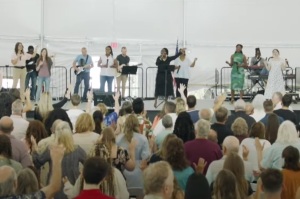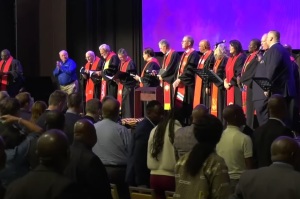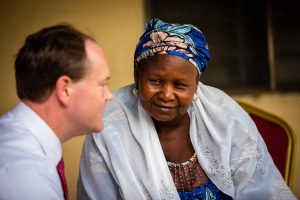Egyptian Church Set on Fire as Gov't Guards Stand By
A Coptic church in northeastern Egypt was set on fire by Muslim extremists on Saturday while government security guards reportedly watched idly.
The Church of St. Abaskharion Kellini in the village of Ezbet Bassilious, Beni Mazar – a city located about 118 miles south of Cairo - was burned down by three local Muslims, according to Copts United advocacy.
Security authorities reportedly watched the arson suspects go inside the church from the back door and come out of the front of the burning building in full view without intervening. By the time firefighters arrived two hours later, the church roof had already completely collapsed.
"Guards were there and just watched; when they heard explosions they went and stood farther," an eyewitness told Coptic News Bulletin. "They saw everything and did nothing, which is evidence of collusion."
Prior to the church burning, the congregation had run into other government obstacles including being closed down by the State Security on the day it was officially inaugurated, even though it had a government license as a prayer facility.
"The State, the Security authorities and the Muslims all do not want any churches, and the Muslim village inhabitants torched it because they just do not want any churches," said an eyewitness who wished to remain anonymous. "We have been warned by security not to talk to anyone especially with the Coptic media from abroad."
Several Christian villagers have filed a report at the police station, naming the three Muslim villagers who they believe carried out the arson. The police officers, however, instead of investigating the attack, reportedly detained and threatened the Christians to change their statements.
In recent years, tensions between Muslims and Christians in Egypt have flared, with more cases of sectarian violence having been reported in the North African country where Christianity used to dominate.
In March, a young Christian man was set on fire and his father murdered after a rumor circulated that he had a romantic relationship with a Muslim young woman. Later, in April, two Christians were shot dead by Muslim villagers in southern Egypt in what was believed to be a revenge killing.
Then in May, a small bomb exploded near a prominent church in Egypt's capital city.
Under Egyptian law, Christians cannot remodel or build a church without a government issued permit. Muslims, however, are free to build mosques without obtaining such permission. Furthermore, nearly all requests for church building permits are denied.
Egypt is predominantly (90 percent) Sunni Muslim with the rest of the population (10 percent) being Christian. Although Egypt's Christian population is small, it stands as the largest Christian community in the Middle East as well as among the oldest.
There were no casualties reported in Saturday's church burning.





























